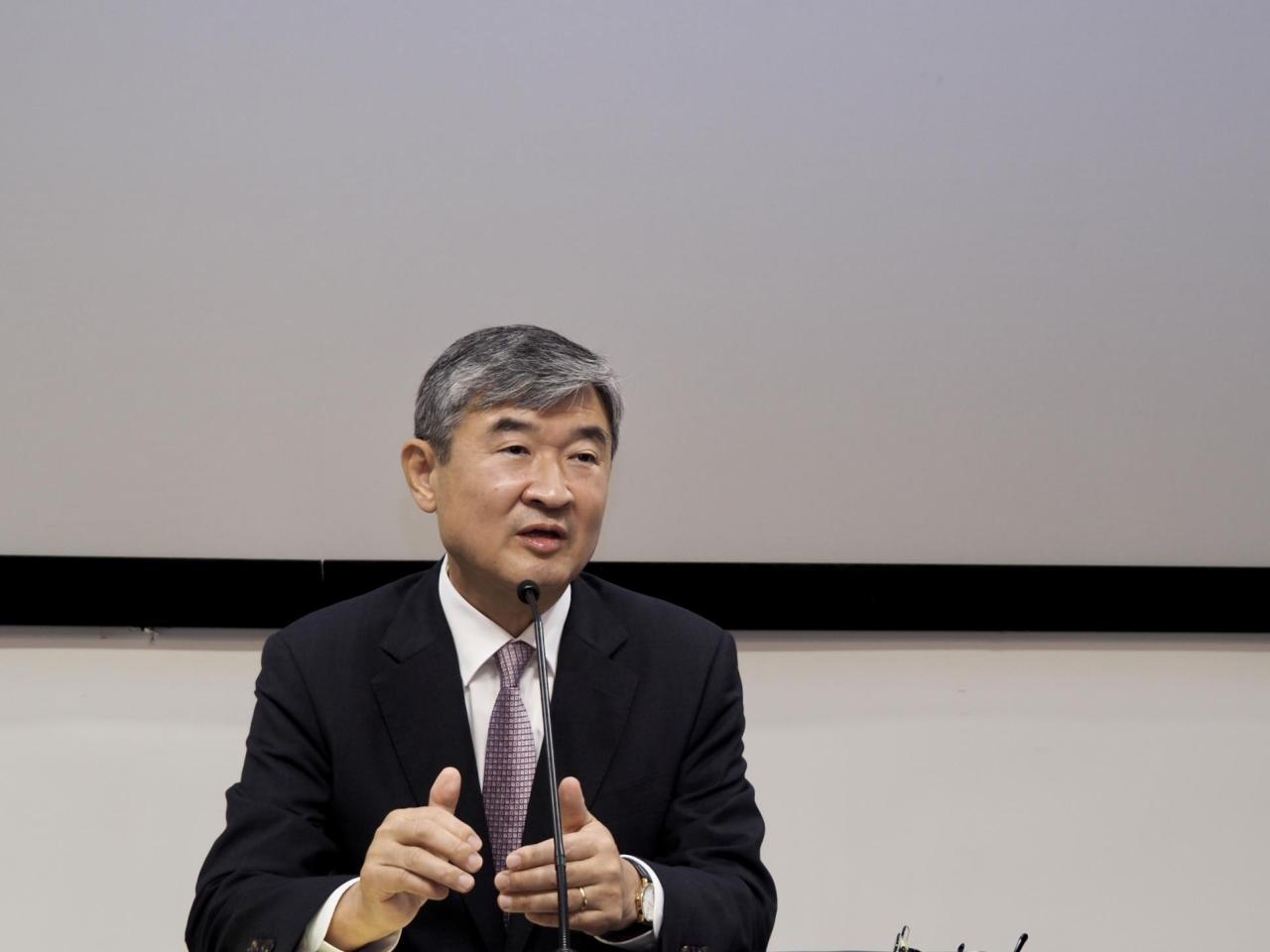 |
South Korean Ambassador to the United States Cho Tae-yong speaks during a press conference with South Korean correspondents at the South Korean culture center in Washington on Monday. (Yonhap) |
South Korean Ambassador to the United States Cho Tae-yong said Monday (US time) the government has delivered strong concerns to the US that the IRA, which excludes electric vehicles built outside of North America from tax benefits, brings "unfair treatment" to Korean electric vehicle makers.
"We stressed that the discrimination (in tax benefits) unfairly treats Korean electric vehicles, when Korea is an ally to the US and is also a free trade agreement partner," Ambassador Cho said in a press conference with Korean correspondents in Washington.
Saying the US did not provide a different view on this point, the two sides agreed to hold formal discussions to find solutions, Cho added.
"We will negotiate in a confident and honest manner and not avoid facing possible challenges in negotiating with the US, to secure our national interest."
US President Joe Biden recently signed the IRA into law, which limits giving the maximum tax subsidies of $7,500 only to the EVs that are assembled inside North America. The act also stipulates that the batteries used in the EVs not only be produced with materials imported from countries with free trade agreements with the US, but also for a certain percentage of the batteries to be made in North America.
For full subsidies, all conditions should be fulfilled. When an EV is assembled in North America but its batteries are not, the subsidy is cut in half.
Immediately after its passage last week, the law directly hit Korean EV makers, including Hyundai Motor and Kia, as they build their flagship models in Korea and export them overseas. Losing the US subsidy, Korean EVs automatically lose price competitiveness. The Korea Automobile Manufacturers Association estimates about 100,000 units of Korean EVs for export will be affected by the IRA.
Presiding an emergency meeting on Tuesday, South Korean Trade Minister Ahn Duk-keun emphasized on the need of forming a bilateral consultative group with the US focused on the IRA.
"I will consider the political and economic situation in the US and strategically push for a bilateral negotiation with the US," Ahn said during an emergency commerce committee meeting held at Korea Chamber of Commerce and Industry.
"We could use the already existing channel of minister-level Supply Chain and Industrial Dialogue, or create a new channel (for negotiation). I will work to make sure Korean companies can receive fair treatment."
Ahn said he will be leading the joint task force of ministries the government plans to launch to handle the issue.
Ahn is set to travel to Washington to attend a meeting of the Indo-Pacific Economic Framework next week. He is expected to meet with officials of the US administration, including the United States Trade Representative and Congress.
While the Korean government seeks for Washington to delay the implementation of the law, or exempt Korean companies from its influence, it is also considering bringing the case to the World Trade Organization for its possible violation of the most-favored-nation treatment principle as a "last resort."
The Korean government sent a delegation of negotiators to Washington on Monday to discuss ways to minimize possible losses to Korean industries. The delegation, which includes senior officials Deputy Minister for International Trade and Legal Affairs of the Industry Ministry An Sung-il and Director-General for Bilateral Economic Affairs of the Foreign Ministry Lee Mi-yon, were to meet with officials of the US administration and Congress.
Despite Seoul's efforts, any amendment to the IRA is highly unlikely, given that the law has already been signed. The law is also giving the Biden administration political momentum, according to observers here.
Ambassador Cho said it would take "great efforts" to come up with a complete solution, as the law has already been enacted in the US.
There is also no reason for the Biden administration scrap the IRA with the midterm elections just around the corner in November, as the law led by the Democrats and is widely welcomed in the US, a foreign ministry official said under the condition of anonymity.
By Jo He-rim (herim@heraldcorp.com)







